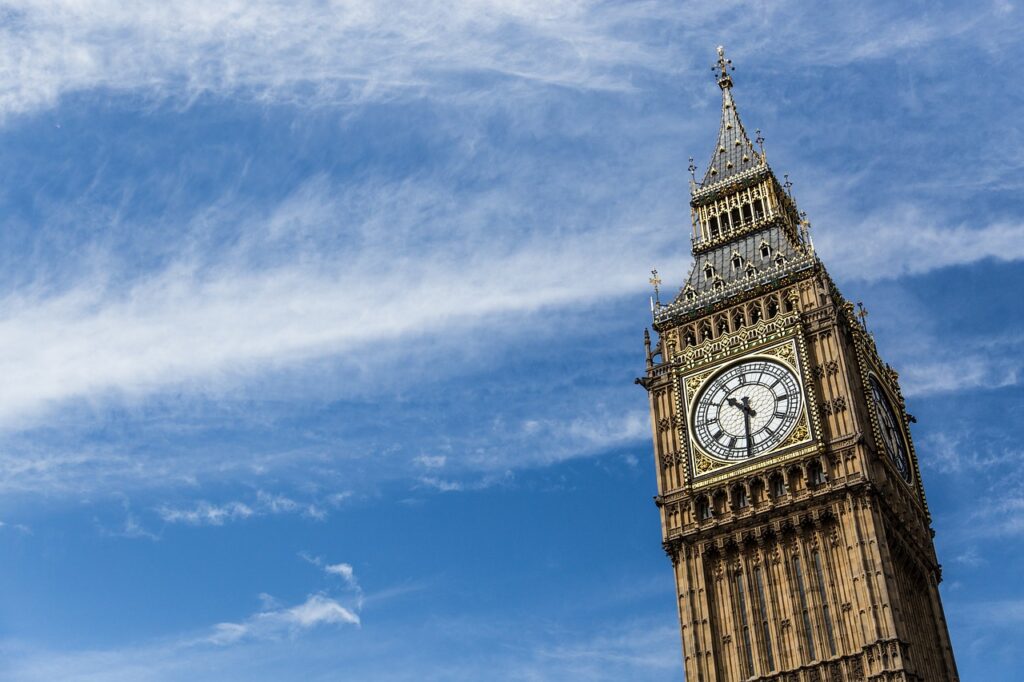Most are familiar with the classic sixth-form debate on whether the House of Lords is fit for a 21st-century Britain. Labour’s recent revision to its pledge on abolishing the Lords has led many to question the Party’s integrity and its inability to settle significant issues of national interest; such as around its ‘green prosperity plan’ that aims to allocate £28bn a year to the cause of Net Zero.
As the government-in-waiting, people should take its proposals seriously, particularly when the British parliamentary system is on the table.
Whilst Labour sits confidentially at 47% in the polls, Starmer is trying not to be complacent while attempting to please both post-modernists on the left, and the old-school, trade-unionists of the cultural right.
Of late, he has been subtly trying to reconvene the party’s relationship with the red wall, which is exhausted by the sheer cost of lethal lockdowns and thus against financially burdensome Net Zero measures.
For example, he claimed to ‘hate tree huggers’ in a recent outburst, whilst Labour’s shadow chancellor Rachel Reeves branded Just Stop Oil’s direct action as counterproductive and pathetic. The importance of good rapport with working people outweighs that of tribalist groups like Just Stop Oil, of whom’s donor also donated £1.5m to Labour. It is alleged that the (recently watered-down) policy to ban new North Sea Oil developments was inspired by the group.
Returning to the Lords, liberal dogma in the form of constitutional change is typically met with apathetic disinterest by the wider public, who concern more about keeping a roof over their head than the latest arrangement of constituency boundaries. However, Starmer’s decision not to abolish the Lords is careerist rather than ideological.
If it were about conviction, he would not want to appoint dozens of peers but instead seek to deliver on the left’s discrete desire to banish the institution as we know it.
Whether you like or loathe the Lords, it is used, particularly by new governments, to ease the difficulty of implementing manifesto promises – fortified by the Salisbury Convention. Attlee used it to nationalise 20% of Britain’s tired post-war economy.
For context, the chamber was founded in 1801 to complement and hold accountable the work of the House of Commons.
Now holding 777 and counting members, it is the second largest legislative chamber in the world after the Chinese National People’s Congress and costs the taxpayer £83,000 a year (as of 2017) per member.
New Labour purported to reform the Lords but ended up creating 374 peers – the most of any Prime Minister – to rush through its manifesto. It allowed them subsequently to create 54% more new laws every year than Thatcher.
A de-facto dictatorship was then configured with the unprecedented 179-seat majority that made it near impossible to defeat a government. This is one of the reasons Mr Blair suffered his first defeat in 2005, long into his second term.
18 years of experimental Blairism displaced the patriotic peers with politically correct friends and apparatchiks of the Blair machine.
The left avidly deplores the unelected nature of the Lords because it is incompatible with the liberal idea of direct accountability from the electorate. Its natural instincts towards revolution and anti-traditionalism suggest it is putting party above principles.
After it tightly secures office and a future in power, it can afford to tactfully unravel its radical programme because of how tired the electorate is of 13 years of Toryism.
Labour cannot be trusted to caretake the Lords, especially since it was Blair who transformed it into its current dire state.
The House of Lords, once a wholesome receptacle of talent where nobody owed anything to anybody, has become unrecognisable and futile in nature – this was exacerbated when large numbers of hereditary peers were forcibly removed.
The hereditary aspect of the Lords was controversial, but why does that matter? Some good things are disliked en masse while the reserve is also true.
In fact, you were far more likely to produce a house of experts, properly educated and unaffiliated to party politics, than with the current system, where exposure to political pressure by acquaintances is rife.
Instead, they were nurtured into the role, encouraged to make rational decisions and liberated from arbitrary term dates – which weaken the duty one has to serve the nation.
Ironically, the Lords, once mocked as an out-of-touch and upper-class chamber, intent on prolonging the status quo, now represent the new bourgeois, Guardian-reading and progressive establishment who are enthusiastic about the European project and mass migration.
For instance, the House blocked the Illegal Migration Bill twenty times and was relentless in stopping Brexit. Starmer has identified this bias and will put aside his party’s resentment of this undemocratic institution for political gain.
He and his party cannot be trusted with the Lords; an institution which, after serving its purpose, will irrefutably lie in the dustbin of British history.




